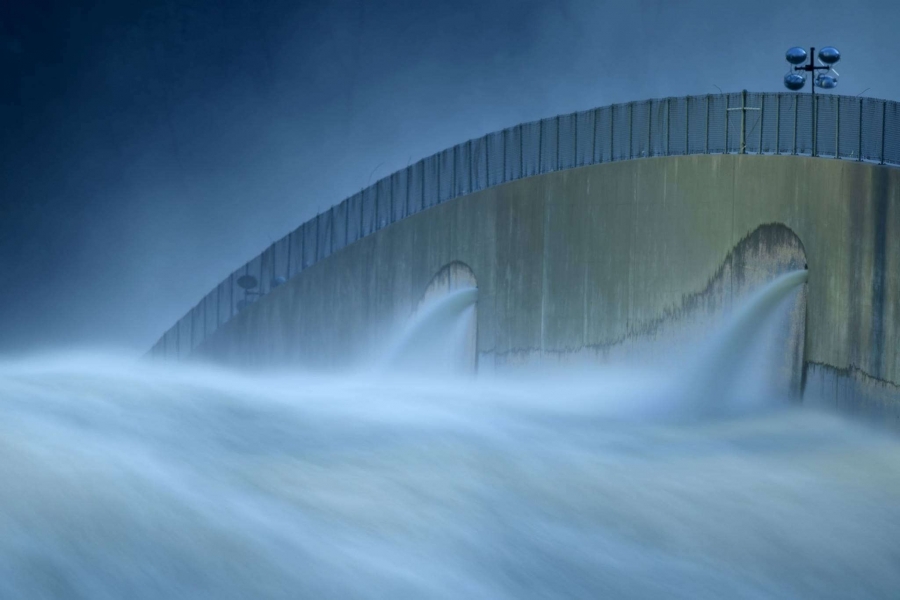
 After I graduated from high school, my family and I spent a month in a cabin on the west shore of Lake Tahoe, California. It was the August of 2014, one of the driest months for the state, so for the Sierras to be dusty at this time of the year is not unexpected. And it was dusty, the air so dry that your lips and skin felt as if one stray movement would encourage cracking like the packed earth beneath our feet.
After I graduated from high school, my family and I spent a month in a cabin on the west shore of Lake Tahoe, California. It was the August of 2014, one of the driest months for the state, so for the Sierras to be dusty at this time of the year is not unexpected. And it was dusty, the air so dry that your lips and skin felt as if one stray movement would encourage cracking like the packed earth beneath our feet.
We were hiking to a lake in Desolation Wilderness, about 12 miles southwest of South Lake Tahoe. After cresting the lip of a ridge at the end of the trail and lying eyes upon Lake Aloha for the first time, I could understand why people hiked to this lake: nestled in a perfect bowl of unbroken, blindingly white Yosemite granite, Aloha’s waters sparkled under the early afternoon sun.
But as we descended into the basin, it became disturbingly apparent that something wasn’t quite right. Twisting between pillars of rock that towered 20 feet above me, we lost ourselves in a maze of granite that should have been underwater.
The Golden Gate Weather Service reports that in the 2014 rainfall season, Northern California only reached 71 percent of the annual snowpack average — the waters of Lake Aloha were absurdly low because California didn’t receive enough rainfall to fill its shores.
Looking up at the sky that day — no clouds to be seen for miles — seemed like damning evidence enough.
Nothing is more sacred to a Californian than water. We’re oddly possessive of our droughts, treating them as if they occur only within state limits. So when we are told to treat our water consumption mindfully, we tend to take heed.
I’m sure we’ve all heard it phrased one way or another: Shorter showers will help save our water. But let me tell you that taking fewer and shorter showers do little but ease your conscience. In fact, lavish shower habits are the least of a Californian’s water worries.
Drive through the Central Valley and you’ll see where much of our water is consumed: farms, farms and more farms.
Since California’s economy — which recently became the fifth largest in the world — relies heavily on agriculture, it shouldn’t come as a surprise that California farms need most of California’s water. The California Department of Food and Agriculture reports that California’s agriculture alone accounts for $45.3 billion in profit — more than in any other state. And, as the state produces a majority of the country’s fresh produce, water is treated like the necessity it is. It appears as if this mindset will only become stronger, especially with the looming issue of global climate change.
For us Californians, our water will be one of the first casualties. In the coming decades, California is expected to see a 10 to 15 percent decrease in average rainfall due to a shift in global weather patterns controlled by melting ice caps.
If this study is true, a decrease in rainfall could be devastating for a state that grows more than half of the United States’ produce. Farming is a business that relies heavily on consistent rainfall; the Public Policy Institute of California figures that around 40 to 50 percent of California’s fresh water goes to agriculture and agriculture-related activities. However, it’s important to mention that these percentages vary per year and per amount of rainfall received in the following year.
Fewer showers are not going to save our water.
We need to stop shaming ourselves into thinking that 10-minute showers are the sole reason we are in this precarious position. Likewise, the agriculture industry needs to become more transparent with the amount of water it uses and stop shoving the blame onto Californians, whose water use is a fraction of the state’s.
This won’t solve the problem — not in a state perpetually plagued by drought after drought, nor in a state that’s responsible for producing much of the country’s food.
Written by: Erin Hamilton — elhamilton@ucdavis.edu
Disclaimer: The views and opinions expressed by individual columnists belong to the columnists alone and do not necessarily indicate the views and opinions held by The California Aggie.




